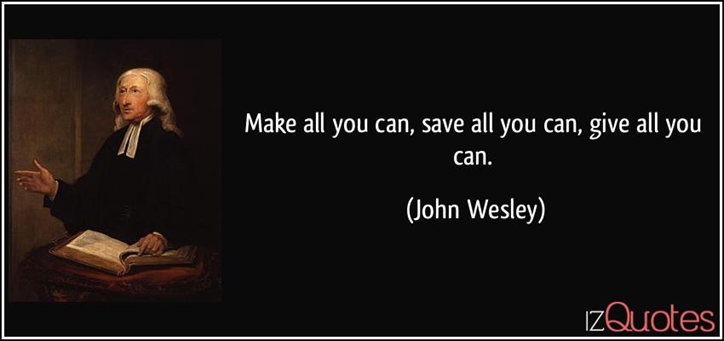STEWARDSHIP
ACADEMY #2
The Stewardship Academy has been
announced, both on my blog last week and on the Upper New York Conference
website, and in this week’s Conference Digest. It will be held on Saturdays,
April 23rd, May 21st, June 18th and July 16th.
At least the first three will be held via Zoom.
Last week, I talked about some of
the resources and books we will be using during the Stewardship Academy. This
week I wanted to introduce the first session, which will be held on April 23rd
from 10 a.m. to 3 p.m. Various topics will be covered at this first session:
1. Theology of Stewardship/Money/Giving - We must challenge the false connection between money and blessing; stewardship is not Legalism; materialism is the ultimate de-humanizer; and our theology of money impacts the church and impacts our personal stewardship.
2. United Methodist Stewardship – John Wesley said: "Of the three rules which are laid down ... you may find many that observe the first rule, namely, 'Gain all you can.' You may find a few that observe the second, 'Save all you can.' But, how many have you found that observe the third rule, 'Give all you can'? Have you reason to believe that 500 of these are to be found among 50,000 Methodists? And yet nothing can be more plain than that all who observe the first rules without the third will be twofold more the children of hell than ever they were before."
3. Economy – Stewardship and money are always affected by the economy, but stewardship and money and church have all definitely changed during the pandemic and the effects of all of that. How do we “do” stewardship in the “new normal”?
6. Giving in the Local Church – there are three ways of giving in an effective stewardship program of a local church: operating, capital and planned.
If you are interested in more
information or in participating in the Academy, please contact me at susanranous@unyumc.org or (315)
427-3668.











